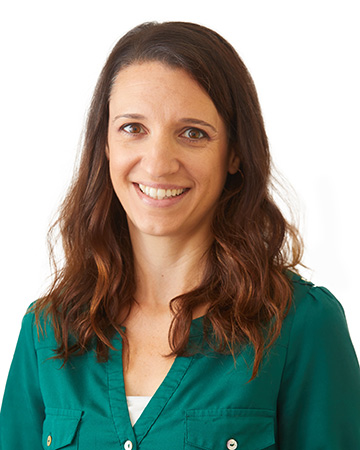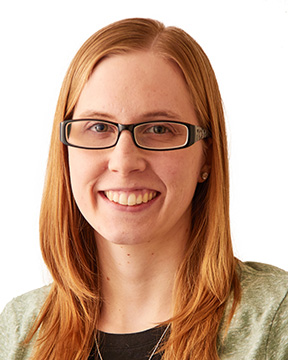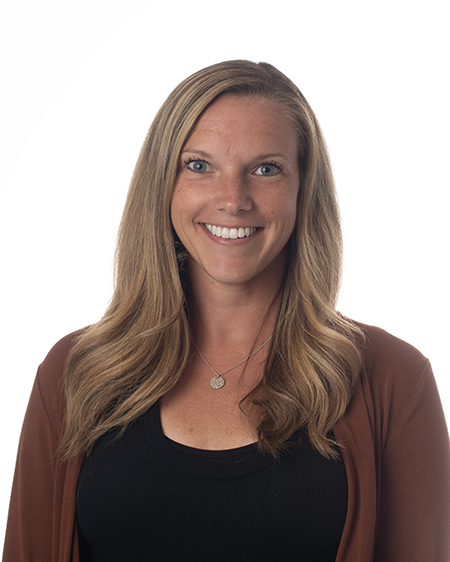Occupational Therapy
Program profile

Program profile
Curriculum
The MSOT program is 24 months in length with extensive hands on clinical experiences woven through the curriculum. The curriculum includes 18 months of face to face on campus education followed by 24 weeks of full time Level II Fieldwork at sites across the United States.
- Visit the Graduate Catalog for course descriptions
Curriculum grids
Curriculum design
Curricular threads
The professional program is conceptualized as a confluence of five curricular threads emphasized at different points in the curriculum:
- Foundational science
- Research (scholarly practice) skills
- Professional identity/leadership
- Clinical skills
- Community engagement

FOUNDATIONAL SCIENCE - Provides understanding of occupational performance and effects of disease/developmental delays based in scientific reasoning.
SCHOLARLY PRACTICE SKILLS - Allow for precise evaluation and interpretation of data/documentation.
PROFESSIONAL IDENTITY/LEADERSHIP - Strong emphasis on therapeutic use of self, multicultural sensitivity, and professional behaviors.
CLINICAL SKILLS - Includes the knowledge and skills necessary for OTs to make decisions at each step of the occupational therapy process.
COMMUNITY ENGAGEMENT - A pillar to our University and Program's strategic plans. Active engagement in our community promotes mutually beneficial relationships by investing in our people, providing services, advocacy and monetary donations, while promoting personal and clinical growth in students.
Facilities
Health Science Center (HSC) serves as the UWL-OT program's home. The HSC provides lecture space for didactic courses as well as clinical and lab facilities. In addition to the UWL Health Professions Programs, the HSC also houses Western Technical College Health Professions Programs, allowing opportunities for inter-professional collaboration..
Accreditation & program history
Accreditation
The UWL OT program is accredited by:
- Accreditation Council for Occupational Therapy Education (ACOTE) of the American Occupational Therapy Association (AOTA)
7501 Wisconsin Ave, Suite 510E
North Bethesda, MD 20814
301-652-6211
accred@aota.org
www.acoteonline.org.
Occupational Therapy educational programs are periodically reaccredited to maintain the quality of the program. The UWL OT program was last accredited (for 10 years) in 2015.
History
The UWL OT program graduated its first class in 2000 with a Bachelor of Science degree. The Master of Science in Occupational Therapy program began in 2005, with the first class graduating in 2007.
Mission
The University of Wisconsin‐La Crosse Occupational Therapy Program is a regionally recognized program, grounded in foundational sciences, hands-on learning, and community engagement. Graduates serve as entry level leaders and team members in the community. UWL occupational therapy graduates are committed to providing quality evidence-based services individualized to facilitate quality of life, wellness, and participation throughout all populations.

Vision
To empower graduates to advocate and lead with empathy and excellence in interprofessional, client-centered, evidence-based care through high-quality, engaging, and cost-effective experiential education.
Program outcomes
Outcomes
|
Graduation year (calendar year) |
Students entering / Students graduating |
Graduation rate |
Percent of students with passing NBCOT certification score |
|
2022 |
26/26 |
100% |
100% |
|
2023 |
26/26 |
100% |
100% |
|
2024 |
25/24 |
96% |
100% |
|
Total |
77/76 |
99% |
100% |
The official pass rate for the UWL program is available from the National Board for Certification in Occupational Therapy (NBCOT) (select Wisconsin, Masters Programs and year of interest).
Fieldwork rotations
Experiential learning experiences are prioritized in courses throughout the curriculum in alignment with the mission and vision of the UW-La Crosse Occupational Therapy Program. The program offers a variety of diverse fieldwork opportunities, summarized below. We value both traditional and immersive Level I and Level II fieldwork experiences, which occur off campus in a wide range of community-based and occupational therapy practice settings. These experiences are designed to prepare students for professional practice and deepen their understanding of real-world service delivery.
Below is a summary of the program’s formal fieldwork experiences, sequence, and alignment with the curriculum.
Program fieldwork timeline (Effective 2025: Class of 2027):
| TYPE | SETTING | TIMELINE | LENGTH |
| Level I | Adult Physical Rehabilitation | Summer 1a | 1 week |
| Level I | Pediatrics | Summer 1b | 1 week |
| Level I | Community Health & Wellness | Spring 2a | 40 hours |
| Level IIA | Variety | Spring 2b | 12 weeks |
| Level IIB | Variety | Summer 2 | 12 weeks |
Program fieldwork timeline (Effective 2025: Class of 2028):
| TYPE | SETTING | TIMELINE | LENGTH |
| Level I | Pediatrics | Winter 1 | 1 week |
| Level I | Adult Physical Rehabilitation | Summer 1 | 1 week |
| Level I | Community Health & Wellness | Spring 2a | 40 hours |
| Level IIA | Variety | Spring 2b | 12 weeks |
| Level IIB | Variety | Summer 2 | 12 weeks |
*Throughout the curriculum, all clinical courses incorporate additional hands-on learning opportunities.
Fieldwork educator resources
Fieldwork team
- Clinical Assistant Professor
- Health Science Center
- pberra@uwlax.edu
- 608.785.5059
- Administrative Assistant II
- Health Science Center
- awiste@uwlax.edu
- 608.785.8471
- Administrative Assistant II
- UW La Crosse
- emielke@uwlax.edu
- 608.785.6624











![UWL College of Business Administration faculty and Mayo Clinic Health System leaders merged academic insight with industry expertise to help shape a better healthcare experience for all. [Pictured left to right: Uzay Damali and Tanner Holst, '01]](/contentassets/d2492d337f8a4841b98d59100cb0f8ab/2025-uwl-cba-mayo-article-collaboration-92.jpg/Medium)